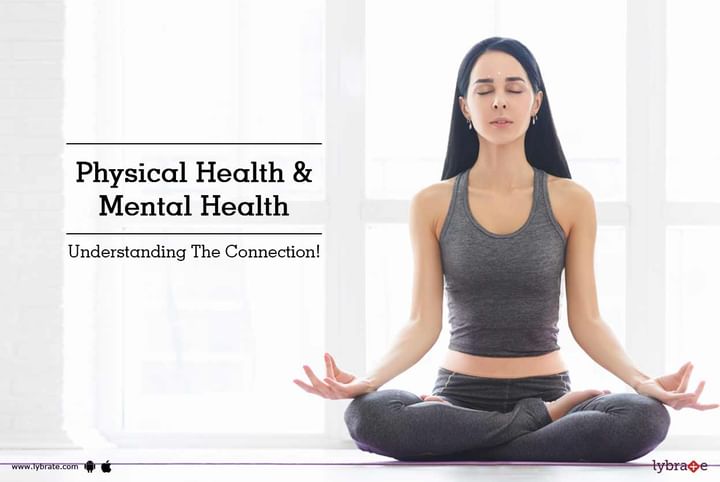Physical Health & Mental Health - Understanding The Connection!
You probably have heard of the saying “A healthy mind comes from a healthy body”. Most often in our daily busy schedule we overlook our eating habits, and physical activity. Are they linked with each other? The answer is YES! There are multiple associations between mental health and chronic physical conditions that significantly impact people’s quality of life. “there is no health without mental health.” The associations between mental and physical health are:
-
Poor mental health is a risk factor for chronic physical conditions.
-
People with serious mental health conditions are at high risk of experiencing chronic physical conditions.
-
People with chronic physical conditions are at risk of developing poor mental health.
Mental health plays a major role in your ability to maintain good physical health. Mental illnesses, such as depression and anxiety, affect your ability to participate in healthy behaviors. This can result in problems with physical health, such as chronic diseases, and can decrease a person’s ability to participate in treatment and recovery. Unfortunately, most people don’t go to a mental health professional for a mental health exam. In many cases, people only seek out a mental health professional after a crisis has occurred.
There are different ways to balance your mental and Physical health both: One of the most impactful way is :Mindfulness”
What exactly is mindfulness, and how can it improve psychological well-being?
"Mindfulness is about being fully aware in the present moment,". "It's about bringing our attention back to the present moment and not getting carried away by our thoughts."Mindfulness helps to train individuals in bringing back the attention time and time again when it has wandered. And it is precisely through helping individuals to not get carried away by their thoughts that mindfulness has been shown to be so effective for conditions like anxiety and depression.
“It's not about getting good at meditation, it's about getting good at life.” And how its helps deepens our connections with others and with the world around us.
Some simple steps to reduce risk of physical illness:
Eat a well-balanced diet, get plenty of rest, get routine check-ups and tests, incorporate regular exercise into your schedule.
Some of the other ways to keep you mentally healthy are:
- Value yourself: Treat yourself with kindness and respect, and avoid self-criticism. Make time for your hobbies and favorite projects, or broaden your horizons
- Take care of your body: Taking care of yourself physically can improve your mental health, therefore, you must ensure
- Eat nutritious meals
- Avoid cigarettes
- Drink plenty of water
- Exercise, which helps decrease depression and anxiety and improve moods
- Get enough sleep as researchers believe that lack of sleep contributes to a high rate of depression in college students
- Surround yourself with good people: People with strong family or social connections are generally healthier than those who lack a support network. Make plans with supportive family members and friends, or seek out activities where you can meet new people, such as a club, class or support group.
- Learn how to deal with stress: Like it or not, stress is a part of life. Practice good coping skills: Try One-Minute Stress Strategies, do Tai Chi, exercise, take a nature walk, play with your pet or try journal writing as a stress reducer. Also, remember to smile and see the humor in life. Research shows that laughter can boost your immune system, ease pain, relax your body and reduce stress.
- Quiet your mind: Try meditating, Mindfulness. Relaxation exercises can improve your state of mind and outlook on life. In fact, research shows that meditation may help you feel calm and enhance the effects of therapy.
- Get help when you need it: Seeking help is a sign of strength — not a weakness. And it is important to remember that treatment is effective. People who get appropriate care can recover from mental illness and addiction and lead full, rewarding lives.
Hear your inner voice and accept that you need help. Just like how we most the people go to the doctor and get a check-up. They have their blood pressure, temperature and weight measured. They have blood drawn to check for issues with cholesterol, blood sugars, thyroid, iron levels, and other measures for their physical health check up. Like wise it’s equally important to take care of your mental health.
In case you have a concern or query you can always consult an expert & get answers to your questions!



+1.svg)
